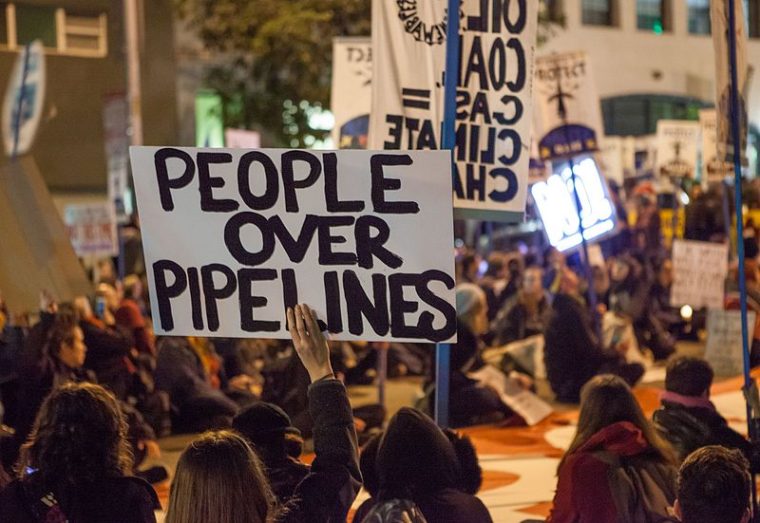One of President Donald Trump’s executive orders will advance the way for the proposed Dakota Access Pipeline project in North Dakota to move forward. The Standing Rock Sioux Tribe, tribes across the nation and their supporters have protested, arguing that the project will damage sacred burial sites and may contaminate the tribe’s main source for drinking water.
The Kathryn M. Buder Center for American Indian Studies at the Brown School at Washington University in St. Louis will tackle issues surrounding the pipeline during the “Indigenous Rights and Environmental Justice Symposium: From Standing Rock to St. Louis” Monday, Feb. 6.
The event is free and open to the public, but registration is required. In lieu of a registration fee, organizers request donations for local schools and service agencies around Cannon Ball, N.D.
“In response to the pipeline crisis and all that it represents, as well as other environmental issues that impact St. Louis in particular, the Buder Center sees this symposium as a way to communicate these critical issues and address these problems head-on and hands-on,” said Molly Tovar (Comanche/Hispanic), director of the Buder Center. “We hope that through this symposium, guests will join us as we work to spread awareness and advocate for change.”
Speakers will include tribal leaders, social workers, geologists, policymakers, lawyers, anthropologists, archaeologists and others.
The keynote speaker will be Harold Frazier, tribal chairman of the Cheyenne River Sioux tribe.
“This symposium is particularly important right now, not only because of the current Dakota Access Pipeline and its infringement on Native rights and land, but also because of the detrimental impact oil pipeline leaks continue to have on our environment,” said Kelli Thompson (Seneca), assistant director of the Buder Center. “Our environment must be taken care of, we need to ensure that future generations will not simply be surviving, but that they are thriving in the environment we leave behind.”
The symposium will provide attendees with the opportunity to learn more about:
- The Dakota Access Pipeline, and how the proposed pipeline has and would affect tribal communities and members;
- Tribal sovereignty and tribal land rights;
- Other current/historical tribal environmental concerns;
- Environmental effects of pipeline leaks;
- St. Louis environmental issues and advocacy;
- An understanding of St. Louis’ indigenous past and present.
For more information on the agenda and to register, visit buder.wustl.edu.

Comments and respectful dialogue are encouraged, but content will be moderated. Please, no personal attacks, obscenity or profanity, selling of commercial products, or endorsements of political candidates or positions. We reserve the right to remove any inappropriate comments. We also cannot address individual medical concerns or provide medical advice in this forum.